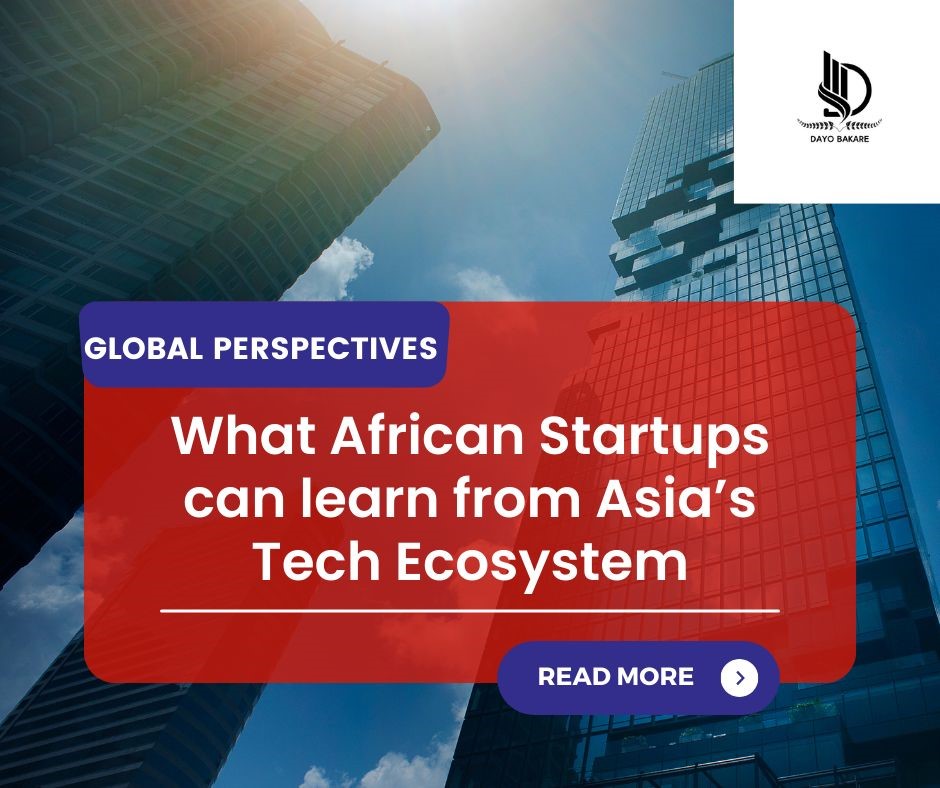
Global Perspectives: What African Startups Can Learn from Asia’s Tech Ecosystem
African startups have been making waves in the global tech scene, but there’s still much to learn from other thriving ecosystems, particularly Asia’s. With its rich history of innovation and remarkable success stories, Asia’s tech ecosystem offers valuable lessons for African startups looking to scale and sustain their growth.
Embracing Collaboration and Co-Creation
One key takeaway from Asia’s tech ecosystem is the importance of collaboration and co-creation. In Africa, we often see startups working in isolation, but in Asia, companies like Alibaba and Tencent have achieved remarkable success by partnering with other businesses, governments, and even competitors .
African startups can learn from this approach by seeking out partnerships and collaborations that can help them scale and expand their reach. This might involve partnering with other startups, established companies, or even government agencies to access new markets, technologies, or expertise.
Fostering a Culture of Innovation
Asia’s tech ecosystem is also known for its vibrant culture of innovation, with many companies encouraging experimentation, risk-taking, and continuous learning. African startups can foster a similar culture by prioritizing research and development, encouraging experimentation and creativity, and providing opportunities for continuous learning and skill-building.
Leveraging Technology to Address Local Challenges
Asian startups have been incredibly successful in leveraging technology to address local challenges and needs. For example, companies like Grab and Go-Van have revolutionized transportation and logistics in Southeast Asia, while companies like Paytm and WeChat have transformed financial services and mobile payments.
African startups can learn from this approach by focusing on solving local problems and meeting local needs. This might involve developing innovative solutions for challenges like access to healthcare, education, or financial services, or creating products and services that cater to the unique preferences and needs of African consumers.
Building Resilience and Adaptability
Asia’s tech ecosystem is also known for its resilience and adaptability, with many companies demonstrating an ability to pivot and adjust in response to changing market conditions and customer needs. African startups can build similar resilience and adaptability by staying agile, being open to feedback and iteration, and prioritizing customer-centricity.
Developing a Strong Ecosystem Infrastructure
Finally, Asian startups have benefited from a strong ecosystem infrastructure, including access to funding, mentorship, and networking opportunities. African startups can develop a similar infrastructure by supporting the growth of tech hubs, incubators, and accelerators, and by promoting initiatives that provide funding, mentorship, and networking opportunities to startups.
In conclusion, African startups have much to learn from Asia’s thriving tech ecosystem. By embracing collaboration and co-creation, fostering a culture of innovation, leveraging technology to address local challenges, building resilience and adaptability, and developing a strong ecosystem infrastructure, African startups can position themselves for success and make a meaningful impact on the continent’s economic development.
Key Takeaways for African Startups
Collaborate and co-create: Seek out partnerships and collaborations that can help you scale and expand your reach.
Foster a culture of innovation: Prioritize research and development, encourage experimentation and creativity, and provide opportunities for continuous learning and skill-building.
Leverage technology to address local challenges: Focus on solving local problems and meeting local needs, and develop innovative solutions that cater to the unique preferences and needs of African consumers.
Build resilience and adaptability: Stay agile, be open to feedback and iteration, and prioritize customer-centricity.
Develop a strong ecosystem infrastructure: Support the growth of tech hubs, incubators, and accelerators, and promote initiatives that provide funding, mentorship, and networking opportunities to startups. By embracing these key takeaways, African startups can learn from Asia’s tech ecosystem and position themselves for success in the global tech landscape.
